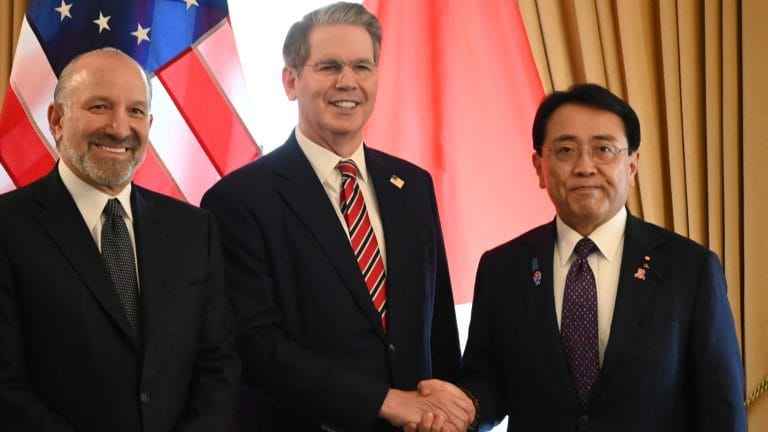🎧 Listen to This Article
Japan’s chief trade negotiator, Ryosei Akazawa, stated that “some progress” has been made in tariff negotiations with U.S. officials during a critical fifth round of discussions in Washington, though he withheld specific details. The talks come at a high-stakes moment: failure to reach a deal could trigger a 24% hike in Japanese imports by July, just ahead of the G7 summit.
Heavy Tariff Burden
Japan is currently facing steep tariffs:
- 50% on autos and auto parts
- 10% across a range of general goods
- Existing duties on steel and aluminum
These tariffs have caused what Akazawa calls “daily losses” to Japan’s economy, particularly in its pivotal auto and industrial sectors.
Diplomatic Chess Before the G7
With the G7 summit set for June 15 and a bilateral meeting anticipated between President Donald Trump and Prime Minister Shigeru Ishiba, Japan is under pressure to demonstrate progress. However, Akazawa emphasized a delicate balancing act: urgency must not override Japan’s strategic economic interests.
Japan’s proposal reportedly includes a tariff-reduction mechanism tied to a country’s contribution to the U.S. auto industry. It is an apparent effort to quantify economic interdependence and turn it into negotiating leverage.
Potential Bargaining Chips
According to prior statements and Japanese media reports, Tokyo’s negotiation toolkit includes:
- Increased U.S. defense equipment purchases
- Shipbuilding technology transfers
- Modifications to U.S. automobile import standards
- Greater imports of U.S. agricultural goods
These offers reveal a pragmatic and multi-sectoral strategy, positioning Japan as a negotiator and a critical economic and security ally.
Strategic Implications
Japanese exporters face a compounded tariff regime if no agreement is reached before July. This could further strain global supply chains already disrupted by U.S.-China tensions. For Washington, this negotiation also tests the coherence of its broader trade policy as it juggles protectionist rhetoric with strategic alliances.
The clock is ticking. And for both sides, the G7 could be either a diplomatic victory lap or a tariff-fueled confrontation.
For further details, clarification, contributions, or any concerns regarding this article, please contact us at editorial@tax.news. We value your feedback and are committed to providing accurate and timely information. Please note that our privacy policy will handle all inquiries.



